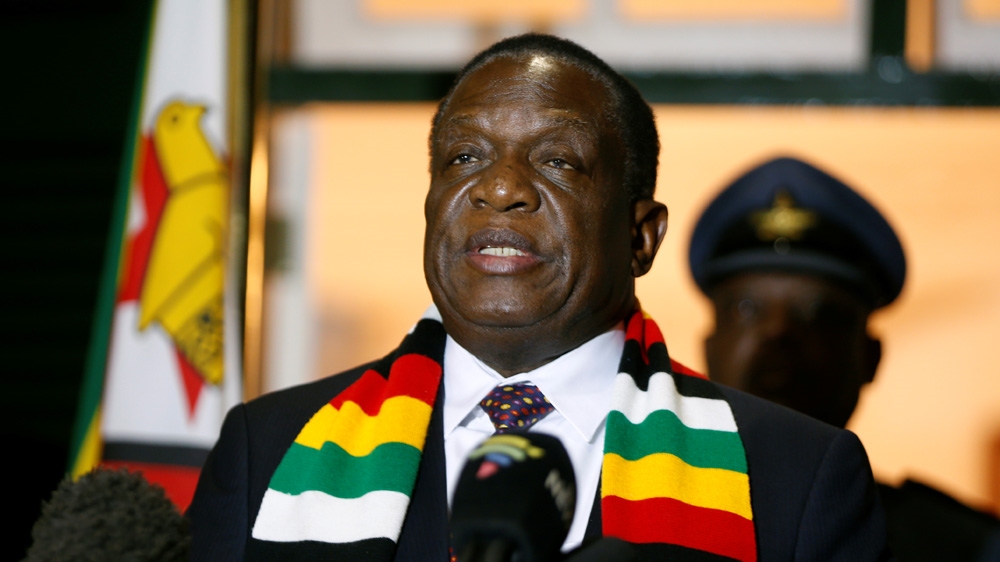Government create stable business environment
PRESIDENT Mnangagwa has reiterated that his incoming Government will forge ahead creating a predictable business environment where capital feels safe and businesses can thrive ensuring accelerated economic growth is enhanced and improves the standard of life for all.
He said investors are free to do business with Zimbabwe but based on respect and mutual benefits, for shared prosperity.
He said riding on the country’s abundant resources and skilled personnel, Zimbabwe is poised to take its place as a competitive manufacturing jurisdiction.
He said untapped opportunities exist for locals to penetrate the global markets and value chains through quality “Made in Zimbabwe” goods and products.
At the onset of his presidency, President Emmerson Mnangagwa has been advancing on various platforms the “Zimbabwe is open for business” mantra and introduced a raft of economic measures to open up the economy to both local and foreign investors.
The strategy was calculated to lure investors to leverage Zimbabwe’s good climate and rich treasure of over 60 mineral resources which are yet to be tapped.
The clarion call has seen a surge in investments in all sectors of the economy with agriculture, mining, and manufacturing sectors taking the lead.
In his acceptance speech on Monday after taking an oath of office to assume his second term in office, President Mnangagwa said a predictable business environment would be critical.
He said the past five years have delivered valuable lessons on the country’s intricate economy, especially the fact that a national currency that is supported by a vibrant productive sector is indispensable to sustainable development.
“No country has ever developed without its own currency. Further, we can only develop and grow the economy based on our own internal resources.
“The new Government shall continue to foster a predictable business environment, where capital is safe. Those who want to invest in our country are welcome, based on respect and mutual benefits, for shared prosperity,” he said,
His call for a predictable business environment has been applauded by economists and the business sector.
They said that will further instil confidence among potential investors and those who have already invested and those who are in various stages of implementing projects.
Lupane State University Business Clinic development manager who is also a financial analyst Mr George Nhepera said President Mnangagwa has struck the right chord with investors which will trigger more investments.
“Now that His Excellency, President Mnangagwa has been sworn into office, it’s back to the business of leading our country, guided by his noble vision of establishing a predictable business environment, where capital is safe.
“In my view, it was a direct call to the public to do what is right for the greater good of the economy and society at large. It is time to come up with policies that are predictable, inclusive and robust to attract foreign direct investments into sectors we have a comparative advantage,” said Mr Nhepera.
“In my view, policies geared to improve economic growth in agriculture and mining should be key to transforming the livelihoods of the people.”
In his address, President Mnangagwa said the numerous mineral resources that the country has must be sustainably exploited to leap-frog our industrialisation and development.
He stressed the need for value addition of the resources in order to benefit both present and future generations. This dovetails with the long-standing vision of becoming an upper-middle-income economy by 2030 in line with National Development Strategy 1 (NDS1) goals.
NDS1 is Zimbabwe’s economic development blueprint (2020-2025) and outlines programmes and project plans during the period by defining the trajectory and aligning the country’s financial flows with policy priorities as identified by stakeholders at national, provincial and local levels.
According to the World Bank, a middle-income economy is one with a gross national income ranging between US$1 086 and US$12 235 per capita.
Since the advent of the Second Republic in November 2017, President Mnangagwa has reiterated his Government’s national vision encapsulated by the rallying call “Towards a Prosperous Upper Middle-Income Economy by 2030.”
Said President Mnangagwa, “The lives of our citizens and the fortunes of our country as a whole must be improved. We expect nothing less.
“Our economy must realise maximum benefits from increased beneficiation and value addition. As such, my new Administration, through the Responsible Mining Initiative, will ensure greater stewardship over our finite natural resources. These must benefit both present and future generations.”
Launching the Responsible Mining Initiative Audit early this year, President Mnangagwa spoke of the need to increase oversight over all mining activities in the country and will not condone malpractices.
The mining sector is central to the attainment of the country’s Vision to become an upper-middle-class economy by 2030. This year the sector is expected to grow by 300 percent through new operations, old but resuscitated projects, increased investor confidence due to the ideal operating environment, and discovery of new mining claims, among other favourable factors.
However, the President said industry should guard against profiteering at the expense of the consuming public and there should be “an intricate balance between profit and the plight of our people.’
“Riding on our abundant resources, as well as skilled and hard-working people, Zimbabwe is poised to take its place as a competitive manufacturing jurisdiction. I exhort industry and commerce stakeholders to be patriotic and always seek an intricate balance between profit and the plight of our people. Profiteering, opportunistic tendencies and greed, will not move our country forward.
“Together, let us grow our country’s manufacturing base, to use, consume and wear what we produce”
Manufacturing and commercial sectors have improved significantly owing to friendly policies under the Second Republic. During the past five years, there has been expansion and resuscitation of industries across the country.
Added to that capacity utilisation jumped from as low as 36,4 percent in 2019 to about 66 percent presently, leading to high employment creation.
In the commercial sector, shelf space occupancy has also increased to above 80 percent with locally manufactured quality products.-chroicle











